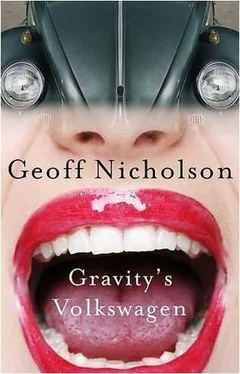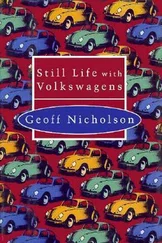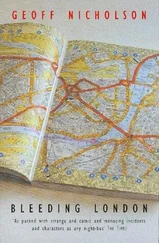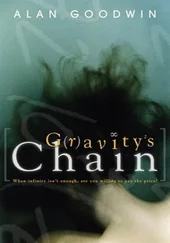“Does the noise ever stop?” I asked.
“Oh sure,” said Josh Martin. “When we’re shooting, then they stop.”
That sounded like a good thing. “Good,” I said.
“Well, let me qualify that,” he said. “What actually happens is that before I say, ‘Action,’ somebody has to go over there with a bagful of cash, and hand it over and that buys us about five minutes of quiet from those bastards. They’ve got me by the prostate.”
I could see it wasn’t a perfect arrangement.
“And it’s making a big fucking hole in the budget,” Josh Martin said angrily. “Still, the author’s here now, everything’s going to be just fucking peachy.”
With that he wandered over to the table where the breakfast buffet had been laid out. He looked at it briefly with disgust and then fell into intense conversation with one of the stocky white men and together they went off, to do something filmic, I assumed, something that had nothing to do with me. I went over to look at the remains of the breakfast and I understood Josh Martin’s disgust. The buffet had been reduced to a few mangled and half-chewed remnants.
“Yeah, you got to get up early in the morning to beat the Teamsters,” said a young female voice behind me.
“Not that the breakfast’s worth getting up early for anyway,” said another voice, a man’s.
I turned and saw two people standing there. They were, there could be no doubt about it, a couple of actors. More than that, given the outfits they were wearing — tattered futuristic jump suits decked out with Volkswagen insignia — they were obviously dressed as characters from my book, from the movie.
The actress was a tall blonde, quirkily good-looking, managing to be simultaneously willowy and muscular. The actor was a dwarf.
“So,” said the woman, “am I the way you pictured Natasha?”
Natasha was the nearest thing my book had to a heroine, or perhaps anti-heroine. She was in love with Troy: the Eva Braun of the story. This flesh-and-blood Natasha looked like a perfectly good piece of casting, but the truth was I didn’t have a very specific idea of how she, or any of my characters, was supposed to look. Maybe some authors have a solid visual image of their creations, but I never do, and especially not of their faces. Sure they have qualities: they’re old or young, fat or thin, good or bad, sexually attractive or not, but that’s about as much detail as I like to give. Partly it’s so that readers can use their imagination to create their own pictures, but it’s also so as not to alienate the less imaginative. If I say a character has red hair, hazel eyes and small breasts, well some people are going to really love those things and think I’m describing a really great-looking woman, but others will hate red hair, hazel eyes and small breasts and therefore not think that the character’s good looking at all. So I tend to use more general or abstract descriptions: she was simultaneously willowy and muscular; and sometimes I just describe someone as ‘attractive’, and let the reader fill in the blanks according to taste.
I didn’t want to get into all that with an actress I was meeting for the first time, so I said, without giving it a great deal of thought, “You’re much sexier than I imagined,” and I felt like a complete idiot the moment it was out of my mouth.
She gave me a complex, ambiguous look and maybe a quarter of a smile. She was evidently flattered but she was also suspicious. Was I just being an arse licker and creep, or was I perhaps being a snide, sarcastic Englishman and implying that she was glossy and vacuous and wrong for the part? I wasn’t doing that, but how could I have convinced her on such limited acquaintance?
“Really,” I said. “You’re much better for the part than I could ever have imagined.”
“I can see I’m going to have to watch you,” she said.
I wasn’t unhappy for her to watch me.
“And what about me?” said the dwarf.
Well, it’s a funny thing isn’t it, I thought to myself. Once upon a time a writer sat in his room back in England, some good while ago, writing a book, and he realised he’d given himself a lot of problems, chiefly that he had too many characters, all of them Volkswagen enthusiasts, and he was having trouble differentiating one from another. Then he thought of a really crass, obvious way of distinguishing one of them: he made him a dwarf. It wasn’t a very original idea, and it took the writer all of three seconds to set down the line, “Ronnie was a dwarf,” yet here and now, a decade or so later, five and a half thousand miles away from home, this thought had been made flesh.
I looked at the actor playing the part of this dwarf character that I’d so casually and so thoughtlessly created, and I didn’t know what to say.
“Don’t tell me,” he said; “you pictured someone shorter.”
I thought he was trying to be funny, so I laughed, though not too hard, in case he wasn’t . Fortunately the dwarf found his own remark just about the funniest thing he’d ever heard, and he slapped me hard on the lower back.
“You’ll get along just fine around here, Ian,” he said, and I did hope he knew what he was talking about.
Igathered together a few feeble breakfast remnants, picked at them, and waited for something to happen. I suppose it did eventually, though I soon saw I might have to redefine my notions of ‘something’ and ‘happen’. A lot of slothful, half-hearted activity eventually coalesced around one of the trailers. A scene was being shot that I could just about recognise as having something to do with my book. It was based on an episode from early in the narrative when two of the Volkswagen survivors first discover what turn out to be velociraptor eggs. In the novel the discovery is made in the ticket office of a wrecked London Underground station. But here the eggs were to be found clinging to the underside of a Baja Beetle: a particularly fine, rugged, bright yellow example of the breed was being used.
The ‘action’, and there’s an interesting word, now consisted of Natasha and Ronnie the dwarf lying on the ground shining torches up under the Baja’s chassis, saying very little but doing a whole lot of reacting. At least that’s what I was led to believe. Actors, crew, camera, lights, sound boom, were all arrayed at ground level, and what with all the reflectors and tripods and ancillary people standing around, I couldn’t see a thing.
Certainly to the untrained eye, such as mine, it seemed that nothing was going on, but then I had only the vaguest idea of what was supposed to be going on. Movies, I knew, were created by a slow, painstaking process. Perhaps everything was going absolutely to plan. True, Josh Martin looked stressed and manic, but from what little I’d seen, that might well have been his default mode. Everybody else looked untroubled, or at least indifferent.
Hours went by, and I realised that nobody had lied about the essential dullness of hanging around a movie set with nothing to do. In fact even those people who did have something to do seemed to be finding it pretty dull too. But I did get my first glimpse of how the movie bought its silence. At rare and widely spaced intervals they were eventually ready to do a take, at which time there was much mumbling into walkie-talkies, and then someone, usually Cadence, my greeter from the previous night, hopped on a bicycle, carrying a small bag of money, and pedalled off to the speedway next door. Shortly thereafter all the noise stopped, there was a shout of, “Action,” the cameras rolled for perhaps thirty seconds, the actors acted, then there was a shout of, “Cut,” perhaps followed by, “Let’s do it again,” or, “Check the gate,” and when they were finished, at most a couple of minutes later, there’d be more use of the walkie-talkies and then the noise from next door would start up again. It seemed a mad, laborious and ramshackle system, but evidently a workable one.
Читать дальше












